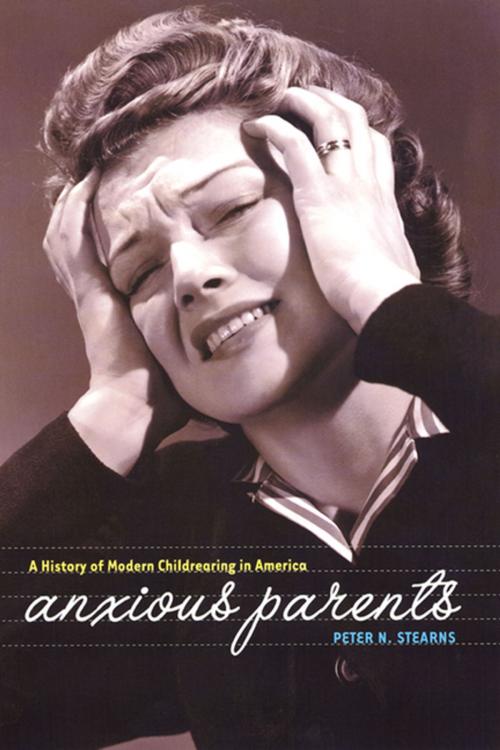Anxious Parents
A History of Modern Childrearing in America
Nonfiction, History, Americas, United States| Author: | Peter N. Stearns | ISBN: | 9780814739990 |
| Publisher: | NYU Press | Publication: | May 1, 2003 |
| Imprint: | NYU Press | Language: | English |
| Author: | Peter N. Stearns |
| ISBN: | 9780814739990 |
| Publisher: | NYU Press |
| Publication: | May 1, 2003 |
| Imprint: | NYU Press |
| Language: | English |
The nineteenth and twentieth centuries saw a dramatic shift in the role of children in American society and families. No longer necessary for labor, children became economic liabilities and twentieth-century parents exhibited a new level of anxiety concerning the welfare of their children and their own ability to parent effectively. What caused this shift in the ways parenting and childhood were experienced and perceived? Why, at a time of relative ease and prosperity, do parents continue to grapple with uncertainty and with unreasonable expectations of both themselves and their children?
Peter N. Stearns explains this phenomenon by examining the new issues the twentieth century brought to bear on families. Surveying popular media, *#8220;expert” childrearing manuals, and newspapers and journals published throughout the century, Stearns shows how schooling, physical and emotional vulnerability, and the rise in influence of commercialism became primary concerns for parents. The result, Stearns shows, is that contemporary parents have come to believe that they are participating in a culture of neglect and diminishing standards. Anxious Parents: A Modern History of Childrearing in America shows the reasons for this belief through an historic examination of modern parenting.
The nineteenth and twentieth centuries saw a dramatic shift in the role of children in American society and families. No longer necessary for labor, children became economic liabilities and twentieth-century parents exhibited a new level of anxiety concerning the welfare of their children and their own ability to parent effectively. What caused this shift in the ways parenting and childhood were experienced and perceived? Why, at a time of relative ease and prosperity, do parents continue to grapple with uncertainty and with unreasonable expectations of both themselves and their children?
Peter N. Stearns explains this phenomenon by examining the new issues the twentieth century brought to bear on families. Surveying popular media, *#8220;expert” childrearing manuals, and newspapers and journals published throughout the century, Stearns shows how schooling, physical and emotional vulnerability, and the rise in influence of commercialism became primary concerns for parents. The result, Stearns shows, is that contemporary parents have come to believe that they are participating in a culture of neglect and diminishing standards. Anxious Parents: A Modern History of Childrearing in America shows the reasons for this belief through an historic examination of modern parenting.















